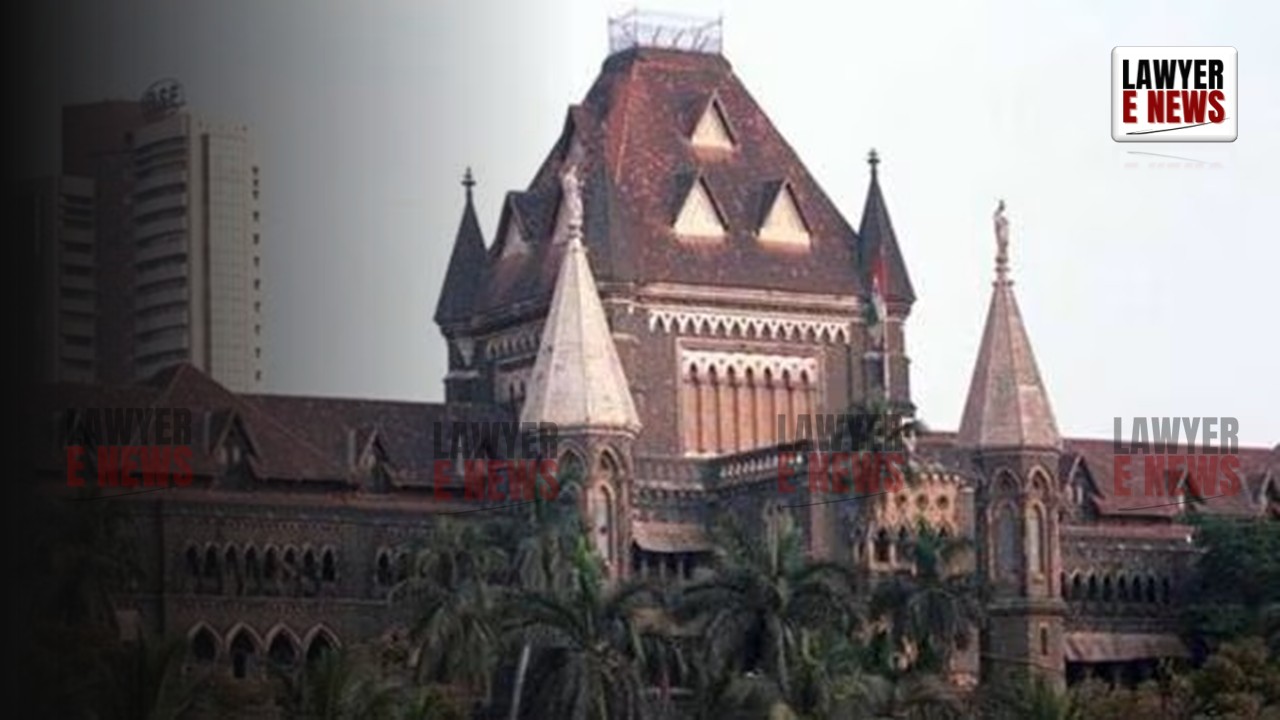-
by sayum
16 February 2026 10:31 AM



The Bombay High Court has dismissed two writ petitions filed by long-term commercial occupants in Panvel, ruling that tenants have no right to challenge eviction notices issued under the Maharashtra Regional Town Planning Act, 1966 (MRTP Act). The Court emphasized that "only landlords can challenge such notices, and tenants’ rights, if any, lie against their landlords, not against public authorities implementing a Town Planning Scheme."
A division bench comprising Justice A.S. Gadkari and Justice Kamal Khata upheld the eviction orders issued by the Panvel Municipal Corporation for road widening from Karnala Circle to Tapal Naka, rejecting the petitioners' demand for rehabilitation on an alternate plot (Plot No. 232(A)) allotted to Ranchodji Devosthan Trust.
Public Projects Cannot Be Delayed Indefinitely Due to Private Interests
The Court strongly criticized the petitioners, stating that they had "successfully stalled the implementation of the Town Planning Scheme for over seven years by misguiding and misrepresenting their claims." The eviction notices were issued in July 2016, yet the petitioners delayed legal proceedings, preventing crucial public development work.
"Town Planning Schemes are implemented for the greater public good, and such projects cannot be indefinitely obstructed by private interests. The petitioners have no right to hold up public development by challenging eviction notices meant for executing a sanctioned scheme," the Court observed.
No Legal Tenancy Rights Established, No Rehabilitation Entitlement
The petitioners claimed to be tenants for over 90 years but failed to produce any tenancy agreements, rent receipts, or municipal records proving their legal occupancy. Instead, Respondent No. 3 (Ranchodji Devosthan Trust) asserted that the petitioners were encroachers who had illegally sublet the premises for commercial use, collecting rents of ₹25,000-30,000 per month without permission.
The Court noted that under Sections 88, 89, and 90 of the MRTP Act, once a Town Planning Scheme is sanctioned, all rights of occupants cease to exist. Referring to the Supreme Court’s ruling in Shaha Ratansi Khimji and Sons v. Kumbhar Sons Hotel Pvt. Ltd., the Court reaffirmed that "mere demolition of a tenanted structure does not extinguish tenancy rights, but such claims must be pursued against the landlord and not the public authorities executing a sanctioned development plan."
Dismissing the petitioners’ request for relocation to the alternate plot, the Court ruled, "Tenants cannot automatically claim rehabilitation unless provided by law. Their rights, if any, are against their landlord, not the municipal corporation or the government."
Encroachment Allegations Strengthen Case for Eviction
The Court was also critical of the nature of businesses being run on a charitable trust’s property, questioning how commercial activities like lottery shops, mobile repair centers, and mattress manufacturing were permitted on a temple trust’s land. "If this land belongs to a religious trust, it is highly improbable that such activities were legally permitted. The Charity Commissioner would have never granted approval for these businesses," the Court remarked.
Eviction Must Be Enforced Immediately
Citing its own ruling in Vivek Krushna Dode v. State of Maharashtra, 2025 BHC-AS 2854-DB, the Court reiterated that "tenants cannot challenge eviction under the MRTP Act; only landlords can do so." The bench directed that eviction be enforced without further delay, lifting the injunction granted in 2019, and dismissed the Interim Application No. 11643 of 2024.
In its closing remarks, the Court issued a strong warning against frivolous litigation aimed at delaying public projects: "The petitioners have caused immense inconvenience to both the municipal authorities and the public by blocking a legitimate Town Planning Scheme for years. This kind of litigation, aimed purely at delaying public projects, cannot be encouraged."
With this ruling, the Bombay High Court has sent a clear message that private interests cannot override public welfare, and that statutory town planning authorities must be allowed to carry out their functions without undue obstruction.
Date of Decision: 06 February 2025
